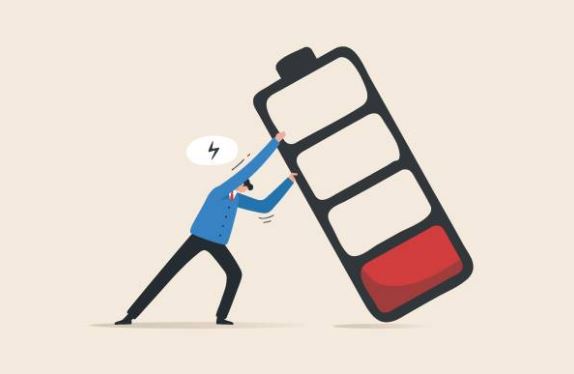Fatigue is a pervasive issue that affects many women, often stemming from a combination of daily demands, hormonal changes, and underlying health conditions. For women, who frequently juggle multiple roles—career responsibilities, family commitments, and personal aspirations—addressing fatigue is crucial for enhancing overall well-being and quality of life.
This article delves into the causes of fatigue, practical strategies for managing it, and ways to empower women to reclaim their vitality.

Understanding Fatigue: The Root Causes
Fatigue is more than just feeling tired; it’s a multifaceted condition influenced by various factors:
- Physical Exhaustion: Overworking the body through long hours, lack of exercise, or inadequate rest can lead to chronic fatigue. Many women find themselves caught in a cycle of physical exhaustion, compounded by poor nutrition and insufficient sleep. The relentless demands of daily life, from professional obligations to household chores, can drain energy reserves.
- Emotional and Mental Stress: Women often experience significant stress from balancing work, family, and personal life. Emotional strain from relationships, financial pressures, and societal expectations can contribute to feelings of burnout. The constant juggling act can leave women feeling overwhelmed and depleted, affecting their overall energy levels.
- Medical Conditions: Fatigue can be a symptom of various health issues, including anemia, thyroid disorders, chronic fatigue syndrome, and depression. These underlying conditions can significantly impact energy levels, making it essential to consult a healthcare provider for a thorough evaluation and appropriate treatment.
- Hormonal Changes: Hormonal fluctuations, particularly those associated with menstruation, pregnancy, or menopause, can impact energy levels. For example, the hormonal changes during menopause can cause sleep disturbances, hot flashes, and mood swings, all of which contribute to fatigue. Understanding these hormonal influences is crucial for managing their effects on energy.

Practical Strategies for Managing Fatigue
Managing fatigue requires a comprehensive approach. Here are some practical strategies that can help women regain their energy:
- Prioritize Sleep: Quality sleep is fundamental for replenishing energy. Aim for 7-9 hours of sleep per night and establish a consistent sleep schedule. Creating a relaxing bedtime routine, such as reading a book, taking a warm bath, or practicing mindfulness, can enhance sleep quality. Avoiding screens and stimulants before bed can also help improve rest.
- Balanced Nutrition: A well-balanced diet is essential for sustaining energy levels. Focus on consuming a variety of whole foods, including fruits, vegetables, lean proteins, and whole grains. Nutrient-rich foods provide the vitamins and minerals needed for optimal energy. Staying hydrated by drinking plenty of water and limiting caffeine and sugary drinks is also important for maintaining energy.
- Regular Exercise: Incorporating physical activity into your routine can significantly combat fatigue. Exercise releases endorphins, which are natural mood boosters and energy enhancers. Aim for at least 30 minutes of moderate exercise most days of the week. Activities such as walking, swimming, or yoga can improve both physical and mental energy levels.
- Stress Management: Managing stress effectively is crucial for reducing fatigue. Practice relaxation techniques such as deep breathing, meditation, or yoga to alleviate stress. Engaging in hobbies and activities that bring joy and relaxation can also help mitigate the effects of stress. Consider seeking support from a therapist or counselor if you’re dealing with chronic stress or emotional challenges.
- Time Management: Efficient time management can help balance responsibilities and reduce feelings of overwhelm. Prioritize tasks, set realistic goals, and delegate responsibilities when possible. Creating a structured daily routine and breaking tasks into manageable steps can make it easier to handle various demands without feeling drained.
- Health Check-Ups: Regular health check-ups are essential for identifying and addressing any underlying medical issues contributing to fatigue. If you suspect a medical condition, seek professional advice and follow recommended treatments. Monitoring your health and addressing any concerns promptly can help prevent fatigue from becoming a chronic issue.

Empowering Women to Reclaim Their Energy
Empowerment starts with acknowledging the impact of fatigue and taking proactive steps to address it. Here are ways to empower yourself and others:
- Educate Yourself: Understanding the causes and effects of fatigue can help you identify the right strategies to combat it. Stay informed about health and wellness through reputable sources and seek resources that provide practical advice and support. Knowledge is a powerful tool in managing fatigue effectively.
- Set Boundaries: Learning to set boundaries is crucial for managing energy levels and reducing burnout. Recognize your limits and avoid overcommitting yourself. Communicate your needs and boundaries clearly with others, whether at work or in personal relationships. It’s essential to prioritize self-care and ensure that you have time for rest and relaxation.
- Practice Self-Care: Self-care is not a luxury but a necessity for maintaining energy and well-being. Make time for activities that nurture your body and mind, whether it’s indulging in a hobby, enjoying a spa day, or simply taking a quiet moment for yourself. Regular self-care practices can help recharge your energy and improve overall health.
- Build a Support Network: Surround yourself with supportive individuals who understand your challenges and can offer encouragement. Join support groups or online communities where you can share experiences and gain insights from others facing similar struggles. Building a network of support can provide valuable emotional and practical assistance.
- Advocate for Yourself: Be proactive in managing your health and well-being. Advocate for yourself in medical settings, seek second opinions if needed, and don’t hesitate to ask for help or accommodations at work. Empowering yourself to take control of your health is a crucial step in addressing fatigue effectively.

Conclusion
Fatigue is a significant issue that can affect every aspect of a woman’s life. By understanding its causes and implementing effective strategies, women can take control of their energy levels and improve their overall quality of life. Prioritizing sleep, managing stress, and seeking appropriate medical advice are key components in overcoming fatigue.
Remember, reclaiming your energy is a journey that requires patience and perseverance, but the rewards—renewed vitality and enhanced well-being—are well worth the effort. Through education, self-care, and support, women can overcome fatigue and embrace a more vibrant and fulfilling life.
